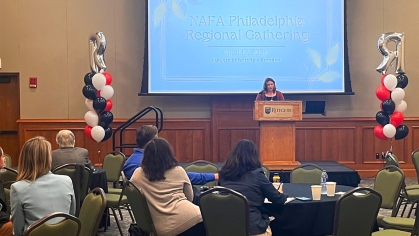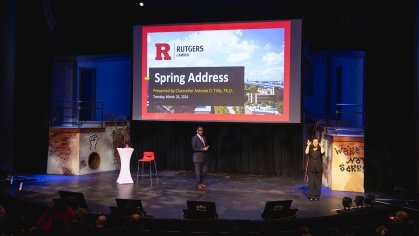Building Bridges—and Tunnels—to Positive Change
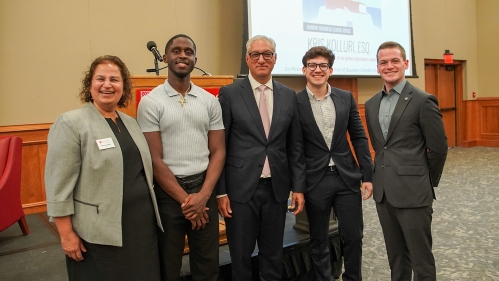
Rutgers–Camden welcomes CEO of the Gateway Development Commission as part of the Eminent Business Leader Speaker Series
A lifetime of public service has taught Kris Kolluri RSBC’91 that business leaders can serve as catalysts for social good and positive change. As the current chief executive officer of the Gateway Development Commission charged with modernizing the rail tunnels in and out of the New York City metro area, he is doing just that.
“What I have come to understand from the work I have done throughout my career is that projects like the Gateway program are more than just building tunnels with cement and rebar; we are building portals of opportunity,” said Kolluri.
Kolluri was the keynote speaker for the second annual Rutgers School of Business–Camden Eminent Business Leader speaker series on March 26. This year's theme, Catalysts for Transformation, was designed to highlight business leaders' ability to impact and support the communities around them.
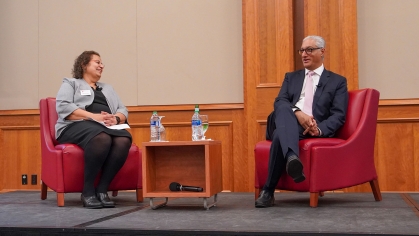
The Gateway Development Commission was formed in 2019 by New York and New Jersey to update and expand the critical rail infrastructure that connects the two states. This portion of the Northeast Corridor (as it is commonly known) is more than 100 years old, yet it continues to carry more than 200,000 passengers on approximately 450 trains daily. When completed, the project is expected to cost $16.1 billion.
“These tunnels revolutionized transportation when they were built and transformed New York into what it is today,” said Kolluri.” But in 2012, Hurricane Sandy caused the tunnels to flood, which did tremendous damage." The result was that elected leaders who had been reluctant to fund upgrades quickly changed course.
“The tunnels are a single point of failure,” said Kolluri. "If those two tunnels fail, then service up and down the Northeast Corridor stops, which would drastically impact travel and the overall American economy." The project will improve reliability, expand capacity, and ensure the long-term resiliency of the entire system.
Before joining the Gateway Development Commission, Kolluri served as president and chief executive officer of Camden Community Partnership, Inc. This private, nonprofit economic development organization plans and implements high-quality urban redevelopment projects to revitalize the City of Camden. Since its inception, it has been responsible for more than $2.5 billion of reinvestment in the city.
“The potential for a city like Camden to grow is unlimited,” said Kolluri. “The roots of this city are strong, from its people and geographical location to its employers and civic leaders.” He emphasized that while the city has endured decades of policies that obstructed positive investment, current leaders appreciate what is possible for the region.
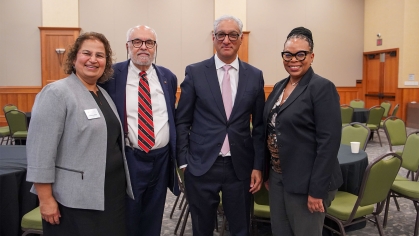
The Eminent Business Leader speaker series was developed as part of the five-year strategic plan for the School of Business in order to provide students, faculty, and staff the opportunity to connect with business leaders.
“It was an honor to have Kris come speak to the campus community,” said Dean Monica Adya. “Our vision for this event is to have innovative, dynamic leaders share their insights on how to use the power of their business expertise to drive transformative change. I can think of no better example than Kris, whose career trajectory deeply reflects the influence business leaders can have in uplifting communities.”

